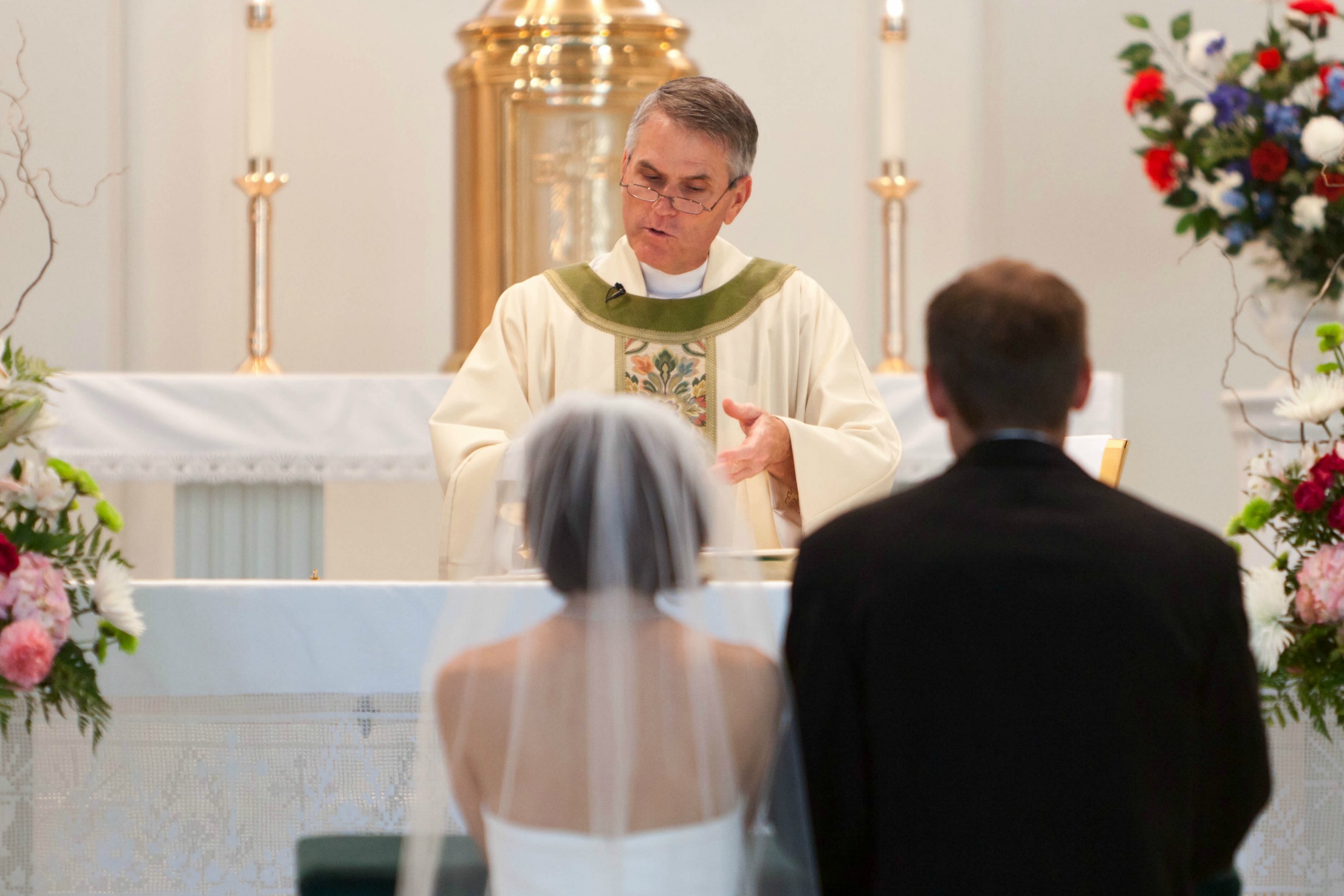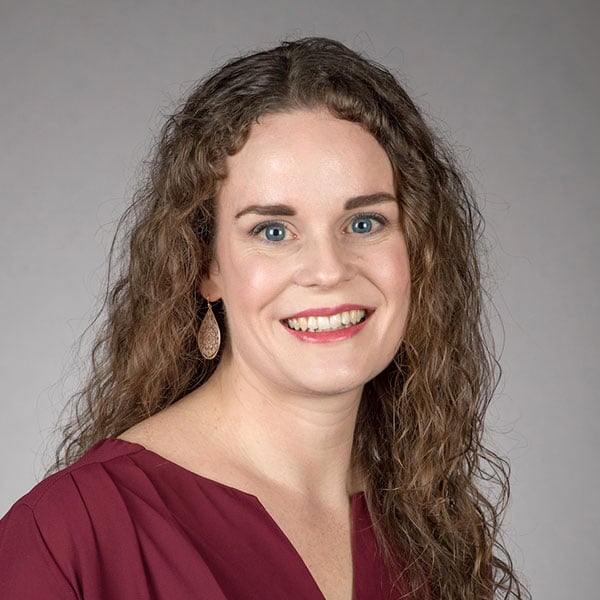In his recent essay on the Sacrament of Marriage, Timothy O’Malley observed that a deeply consumerist culture has grown up around the nuptial liturgy and the reception. Having assisted engaged couples with choosing the liturgical music for their wedding ceremonies, I can attest that this consumerist culture is not simply relegated to externals like flowers and clothing; rather, it has seeped into many couples’ perceptions of the nuptial liturgy itself. In some respects, this is only natural; for example, the couple chooses Scripture readings that carry special meaning for them or that present an important teaching of the Church that they wish to be reminded of on their wedding day. It is commendable that such choices are made with care and consideration—it allows the wedding ceremony itself to reflect the particularity of the couple being joined together in Matrimony; however, a problem arises when this mindset toward personalization becomes the sole motivation behind decisions that shape the liturgical celebration and the couple loses sight of its place in the Church as a whole.
Unfortunately, many couples have a particular blind spot in this regard when it comes to the music that will be heard and sung during their wedding liturgies; often, they cannot understand why certain restrictions surround the musical choices for “their special day.” Thus, it is often incumbent upon the director of liturgical music to be the bearer of bad news: no, it’s not appropriate for someone to sing “You Raise Me Up” instead of a Responsorial Psalm. No, the bride absolutely cannot walk down the aisle to the “Imperial Death March” from Star Wars. No, the Bridal Chorus from Wagner’s opera Löhengrin (often referred to as “Here Comes the Bride”) is not the greatest choice for a processional. Why? Well, let’s just say the plot at that point is less like the end of a fairy tale and more like Game of Thrones (granted, most people probably won’t know the context of the opera’s plot, but the ubiquity of this piece in film and television has also made it somewhat of a musical cliché. There’s better wedding music out there, trust me). And yes, I had to have all of these conversations during my time as a parish director of liturgical music.
The perception that a couple should be able to have any music they want played during their wedding liturgies is part and parcel of the consumerist culture articulated in O’Malley’s essay. Wedding music is somehow more about reflecting the couple’s preferences and personalities rather than being “closely connected with the liturgical action” (Sacrosanctum Concilium, §112). It’s the icing on the liturgical wedding cake—a merely decorative element that makes the couple’s special day even more special. This couple-centric mentality, coupled with a shallow understanding of the purpose of liturgical music, is evidenced by the rarity of congregational singing in the typical wedding liturgy: most couples in my experience simply wanted a cantor and a keyboardist and had no interest in including the musical settings for the eucharistic acclamations or hymns (if there were any) in the programs for the liturgy.
Again, this trend makes sense on one level. No one wants to be looking down at a worship aid to sing hymns during the processional or recessional. People want to watch their friends and loved ones walk down the aisle and smile and clap for the newlyweds as they leave the church. Put simply, the assembly has gathered as witnesses to the love being celebrated and consecrated; they want to witness it! But on a deeper level, the assembly has gathered as witness to the love shared between the couple; its members are there to lend support and most importantly to pray for the couple as they embark on this sacramental life together. What better way to pray for them than to sing to God on their behalf? As St. Augustine reminds us, “Singing is for the one who loves”; why should members of the assembly be denied the opportunity to express their love for the couple by singing their prayer with them and for them?
At the heart of this matter is the misperception that the wedding liturgy—and marriage in general—is about the couple. It’s not. Just as one’s vocation is not about oneself, the wedding liturgy is not about the couple, at least not exclusively. Alexander Schmemann affirms this point and articulates an alternate vision of the Sacrament of Matrimony and of marriage in general:
Here is the whole point. As long as we visualize marriage as the concern of those alone who are being married, as something that happens to them and not to the whole Church, and therefore, to the world itself, we shall never understand the truly sacramental meaning of marriage to which St. Paul refers when he says, “But I speak concerning Christ and the Church” [Eph 5:32]. . . . The sacrament of matrimony is wider than family. It is the sacrament of divine love, as the all-embracing mystery of being itself, and it is for this reason that it concerns the whole Church, and—through the Church—the whole world. (For the Life of the World, 82)
A wedding liturgy that embraces this cosmic scope will be one in which the couple realizes that their vocation is not simply for their own good, or for their spouse’s good, or even for the good of their future children; rather, their vocation to marriage is for the good of the entire world. Thus, the music chosen for this sacramental celebration must be of a caliber capable of reflecting the height and breadth and depth of this spiritual reality, rather than simply indicating the personal preferences of the couple.
This is not to say that the particularities of the couple are erased in the face of the universality of their vocation; it is simply to say that couples must be made aware of the solemn dignity of their vocation and encouraged to see their wedding liturgy and especially its music as a tangible and beautiful expression of this broader vision of marriage. It is within this broader vision that the United States Conference of Catholic Bishops expressly states that wedding music “should reflect the truth that all the sacraments celebrate the Paschal Mystery of Christ,” specifying in particular that “secular music, even though it may emphasize the love of the spouses for one another, is not appropriate for the Sacred Liturgy. Songs that are chosen for the Liturgy should be appropriate for the celebration and express the faith of the Church” (Sing to the Lord, §220).
How, then, is this to be accomplished? Through marriage preparation that emphasizes from the beginning the fact that this couple is called to sacramental marriage not merely for their own good, but for the good of the entire world, and that their nuptial liturgy is the first step in realizing that good. Through pastors and liturgical music ministers who gently but firmly insist on wedding liturgies in which the music is consistent with the liturgical norms set forth by the Church, and more importantly, help the couple to see their wedding music not simply as a reflection of who they are as fiancés but also who they are as members of the Body of Christ. This necessitates consistent diocesan policies (and the enforcement of said policies); otherwise, a couple can simply decide to get married in a parish that will let them have whatever wedding music they want, and the cycle of consumerism continues.
For indeed, choosing wedding music that reflects the couple as well as acknowledges their role in the life of the Church is not an impossible ideal. Hymns like “Love Divine, All Loves Excelling” or “O God, Beyond All Praising” or “All Creatures of Our God and King” or “Ubi Caritas et Amor” call to mind the divine love that is reflected in the human love of this particular couple, as well as the mystery that the human love of this particular couple is being consecrated in this celebration of the sacrament—it is caught up in the divine love of the Trinity so that it might become a sign to the rest of the world. If couples can learn to see their wedding liturgy in this radiant and transfiguring light, perhaps they can also learn to see that the music they choose is not so much a reflection of who they are now, but rather a vivid reminder of who God is calling them to become together, for the good of the Church and for the life of the world.
![]()
Featured Photo: Travis Rock; CC BY-NC 2.0.



